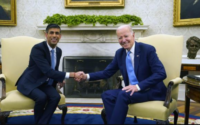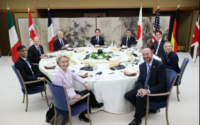Closing doors: political space diminishing alarmingly 2023
Prime Minister Abiy Ahmed (PhD), who took office in 2018, promised to broaden the political arena and foster media growth. Abiy delivered a historic address in Parliament as he was sworn in as prime minister by Hailemariam Desalegn. He pledged to cease opposition group political persecution.
He called the press the “fourth branch of government” and promised legal independence. The speech gave the nation hope for the future.
Abiy’s administration initially kept its promises. They released long-incarcerated journalists. Politicians release terrorists too. He helped rescind a president-imposed anti-corruption declaration.
The UN asked Abiy to speak at the 26th annual World Press Freedom Day commemoration in Addis Ababa on May 1-3, 2019, after being pleased by his reforms.

After then, things deteriorated. His government revived an old method to silence dissenters. His political disagreements are rising with the opposition, and his inability to resolve his conflict with the Tigray People’s Liberation Front (TPLF) has led to a two-year civil war that has killed over 600,000 Ethiopians, if not more.
His government has failed to limit his TPLF dispute. Politics are now censored. The administration often silences critics. Opposition figures were detained, and activists in jail spent days without legal representation or due process. Allegations against court dissenters are rising.
Political analyst Lemi Sime studies peace and war. Transition issues plague him.
“Even though the transition phase has been longer than I anticipated, the narrowing of the political field is to be expected at such a time,” said Lemi.
Political activist Wubshet Taye agrees.
The adjustment did not live up to expectations, but there is still time and room to make a change. He stated change is yet possible.
The Ethiopian Human Rights Commission (EHRC) has been calling on authorities to cease harassing media outlets and defend free speech. The Commission reports worrisome attacks on journalists, opposition political parties, and government critics.
“We are seeing attacks targeted at opposition groups and individuals who are critical of the government’s action, which is a worrying development,” EHRC commissioner Daniel Bekele told MPs as he submitted the entity’s nine-month report. These attacks target government critics.
The authorities’ refusal to allow opposition groups to gather is another sign of the lack of political space, which some political observers and right-leaning organizations see as a breach of constitutional rights to assemble and organize.
“Since authorities are not allowing opposition groups to use public-owned halls, we are renting space for them, which is unnecessary,” said board deputy chair Woubshet Ayele.
International right-wing organizations also worry about Ethiopia’s dwindling democratic space.
“Journalists and media workers need to be able to do their work without any threat, intimidation, or harassment to effectively carry out their professional duties of informing the public and contributing to holding authorities accountable,” said Flavia Mwangovya, deputy regional director, East and Southern Africa, Amnesty International, last month after the arrest of seven journalists and media workers.
Amnesty dubbed Ethiopia and Eritrea sub-Saharan Africa’s worst jailers of journalists.
Wubshet blames the government, media, and opposition for Ethiopia’s political impasse. He blames media bias.
Political analyst Ersido Lendebo believes Ethiopia’s political space is shrinking.
He blamed ethnic polarization and uncontrolled government authority for the absence of political space. Experts like Ersido say the government should look inside rather than respond to the media’s portrayal of racial division.
Media, government, and academia should examine themselves. Ersido stated the public discourse about the political issue is what matters.
Lemi has reasons to remain cheerful despite problems.
“The commitment of the government to bring law and order, which is critical for the political climate, and the talks started to narrow political differences through negotiation, adding to the planned national dialogue, show that things are moving in the right direction,” Lemi added. “The planned national dialogue is enhancing progress.”
Despite this optimism, limiting political space affects democracy and human rights by making it difficult for individuals to participate in public affairs.



